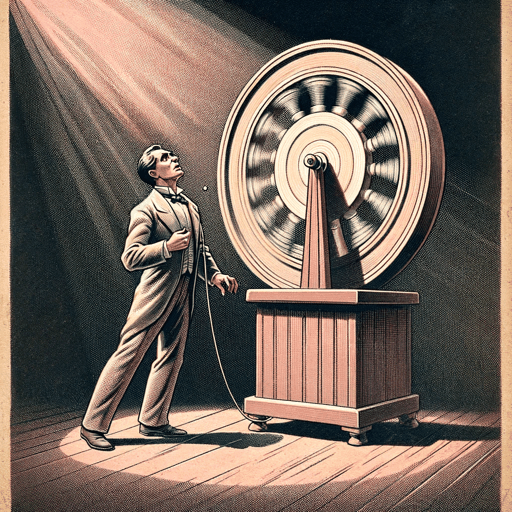55 pages • 1 hour read
Ralph EllisonKing of the Bingo Game
Fiction | Short Story | Adult | Published in 1944A modern alternative to SparkNotes and CliffsNotes, SuperSummary offers high-quality Study Guides with detailed chapter summaries and analysis of major themes, characters, and more. For select classroom titles, we also provide Teaching Guides with discussion and quiz questions to prompt student engagement.
Introduction
“King of the Bingo Game”
- Genre: Fiction; short story; African American literature
- Originally Published: 1944
- Reading Level/Interest: Grades 9-12; college/adult
- Structure/Length: Approximately 14 pages; approximately 21 minutes on audio
- Protagonist/Central Conflict: The unnamed protagonist, a desperate African American man from the South living in the North during the 1940s, believes his fate depends on winning a movie theater bingo game. The story examines themes of fate, desperation, and the illusion of control in the face of social and racial discrimination.
- Potential Sensitivity Issues: Racial discrimination; poverty; despair; brief violence
Ralph Ellison, Author
- Bio: Born 1913; died 1994; African American writer and literary critic; born in Oklahoma City and educated at Tuskegee Institute; works explore themes of racial and social identity; debut novel Invisible Man is considered a classic of American literature; received numerous honors and awards for his contribution to literature
- Other Works: Invisible Man (1952); Shadow and Act (1964); Juneteenth (1999)
CENTRAL THEMES connected and noted throughout this Teaching Guide:
- The Great Migration and Dislocation Between North and South
- Dostoevsky’s Underground Man and The Rejection of Social Norms
- Invisible Man and African Americans Coming of Age Through Existential Crisis
STUDY OBJECTIVES: In accomplishing the components of this Guide, students will:
- Develop an understanding of the historical and literary contexts regarding the effect of The Great Migration on the development of the Harlem Renaissance in early-20th-century American history, which impacts the development of Ellison’s characterization.
Related Titles
By Ralph Ellison



